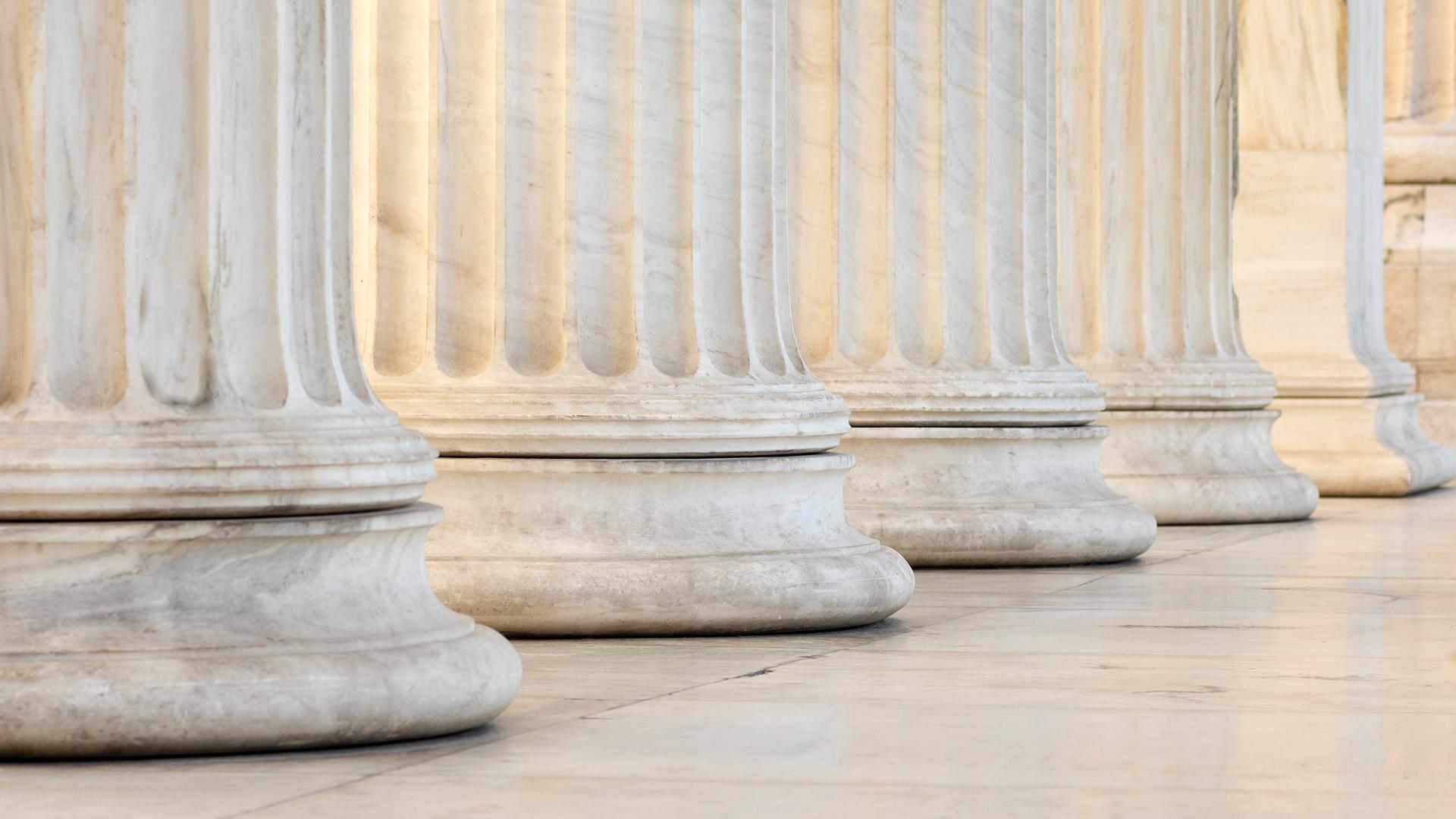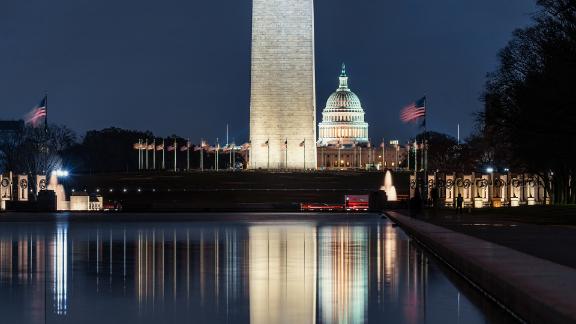Here’s a look at recent tax-related happenings on the Hill, including Senate Majority Leader John Thune (R-SD) working toward a Senate floor vote this month on the budget reconciliation bill.
Lately on the Hill
Senate Takes the Reins of Budget Reconciliation Bill
The Senate began deliberations last week, honing in on changes it would like to make to the House-passed One Big Beautiful Bill Act (OBBBA). At the forefront of priorities, Senate leadership would like to make some of the House’s temporary business tax cuts permanent. These would include immediate deductibility for domestic research and experimental expenses, a more favorable calculation for deducting business interest expense, and 100% bonus depreciation. The current version of the bill addresses these provisions on a temporary basis, sunsetting after 2029.
While the debate on the cap on state and local tax deductions proved a stumbling block in the House, the state representation in the Senate is different. None of the Senate seats of California, New Jersey, or New York—all high-tax states—are held by Republicans, muffling the calls of House representatives of those states for an expanded SALT deduction that had permeated negotiations in the House. In reference to the House-struck deal to increase the cap to $40,000, Thune said, “It would be very hard to get the Senate to vote for what the House did. We’ve just got some people that feel really strongly on this.”1
Republican senators appear keener on tamping down some of the accelerated clean energy credit phaseouts and cuts to Medicaid passed in the House than providing a higher deduction for SALT. Any change, however, will have to again pass a vote in the House. The Senate will have to balance making changes that its members want without losing support of House members.
The Senate majority is slim, and Republicans can only afford to lose three votes to pass any legislation. The majority is even tighter in the Senate Finance Committee (SFC), where the party holds a one-seat advantage. Because of this, the SFC may forgo a formal markup of the bill, opting to make any tax-related amendments on the Senate floor where the numbers provide more flexibility.
Thune is still working toward the self-imposed Independence Day deadline to have the bill to President Donald Trump for signature. Thune is targeting the last week of June to hold the Senate floor vote.2
CBO Releases Estimate on Reconciliation Bill
The Congressional Budget Office’s (CBO) cost estimate for the OBBBA projects a $2.4 trillion increase to the deficit over a 10-year period. The figure comprises $5.3 trillion in tax cuts and spending, partially offset by $2.9 trillion of revenue and spending cuts. The two House committees with the largest impact on the score are the Committee on Ways and Means—primarily responsible for tax provisions—at nearly $3.8 trillion in cost and the Committee on Energy and Commerce—primarily responsible for Medicaid cuts—at just under $1.1 trillion in revenue.
Executive Action Increases Tariffs on Steel & Aluminum
On June 3, 2025, Trump signed a proclamation increasing tariffs on imports of steel and aluminum from 25% to 50%, effective June 4, 2025. Tariffs on such imports from the United Kingdom remain at 25% until at least July 9, 2025, pending the status of the trade deal between it and the United States. These tariffs are imposed under Section 232 of the Trade Expansion Act of 1962 and are not impacted by the recent rulings by the U.S. Court of International Trade and the U.S. District Court for the District of Columbia as reported in our previous edition of “From the Hill.”
The Judicial Report
Catholic Charities Bureau, Inc. v. Wisconsin Labor & Industry Review Commission, U.S., No. 24-154, June 5, 2025.
The U.S. Supreme Court ruled unanimously in favor of Catholic Charities Bureau (CCB), deciding that the Wisconsin Supreme Court’s ruling requiring the organization to pay state unemployment taxes violated the organization’s First Amendment rights.
The Wisconsin Supreme Court had held that CCB and four related entities did not qualify for a religious exemption under state law because “[the] petitioners are not ‘operated primarily for religious purposes’ because they neither engage in proselytization nor serve only Catholics in their charitable work.”
According to the decision, written by Justice Sonia Sotomayor, “the First Amendment mandates government neutrality between religions and subjects any state-sponsored denominational preference to strict scrutiny. The Wisconsin Supreme Court’s application of [the state statute] imposed a denominational preference by differentiating between religions based on theological lines. Because the law’s application does not survive strict scrutiny, it cannot stand.”
The wider impact of the ruling is yet to be seen; however, the implications could be “seismic” as states across the country have similar exemptions.3 Similarly organized secular organizations may argue for unemployment tax exemptions under the Establishment Clause, which forbids government actions that favor religion generally.
Facebook, Inc. v. Commissioner, No. 21959-16, 164 T.C. No. 9
The U.S. Tax Court ruled in Facebook’s transfer pricing case that the income method described in the 2009 cost-sharing regulations can be used to determine the value of a platform contribution transaction payment. The ruling sides with the IRS, although the court also determined that the agency did not properly calculate the valuation using that method.
From the Treasury & IRS
Nomination for IRS Commissioner Advances
Billy Long’s presidential nomination to be the next IRS commissioner advanced out of the Senate Finance Committee on a party-line 14-to-13 vote last week. A full Senate confirmation hearing has yet to be scheduled. If confirmed, Long would serve out the remainder of former IRS Commissioner Danny Werfel’s term—through November 2027.
Faulkender Warns OECD Should Accept U.S. International Tax Regime
Deputy Secretary of the Treasury Michael Faulkender issued a warning to the Organisation for Economic Co-operation and Development (OECD) to accept U.S. tax measures—such as taxes on global intangible low-taxed income, foreign-derived intangible income, and base erosion and anti-abuse taxes—as complying with OECD’s global minimum tax initiative or face consequences.
If the U.S. tax regime were deemed non-conforming, it may result in other countries implementing the undertaxed profits rule against multinational businesses. The current form of the OBBBA contains a provision, proposing §899 to increase the tax rate against certain “discriminatory foreign countries” with “unfair tax regimes.” For more information, read our FORsights™ article, “Proposed Section 899 Targets 'Unfair Foreign Taxes' by Increasing U.S. Tax Rates.”
Tax-Exempt Organization Audits Continue Plunge
According to the IRS’ 2024 Data Book released on May 29, 2025, the agency reported a 34% decline in the number of audits of tax-exempt organizations. Audits of such organizations that file form series 990, 1041-A, 1120-POL, and 5227 have seen a cumulative 81% drop since fiscal year 2010. Last year, Werfel attributed the decline to “certain statutory constraints” imposed by Congress following political targeting allegations in 2013.4
Tackling Tax
Be sure to catch this week’s installment of our new show “Tackling Tax,” where we’ll bring you the latest on tax policy and strategies. In our third episode, Lance Jacobs from the Washington National Tax Office at Forvis Mazars will explore some timely state and local tax issues.

